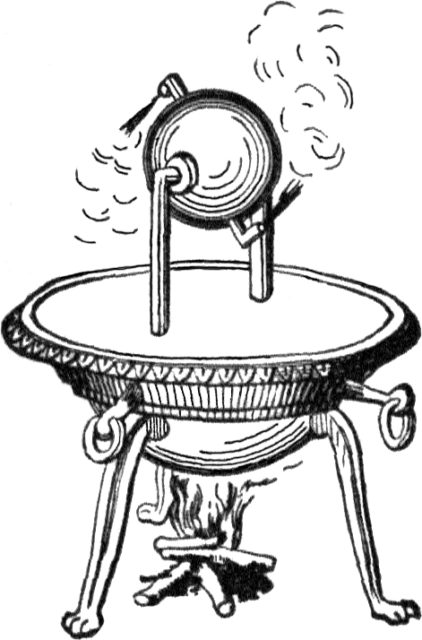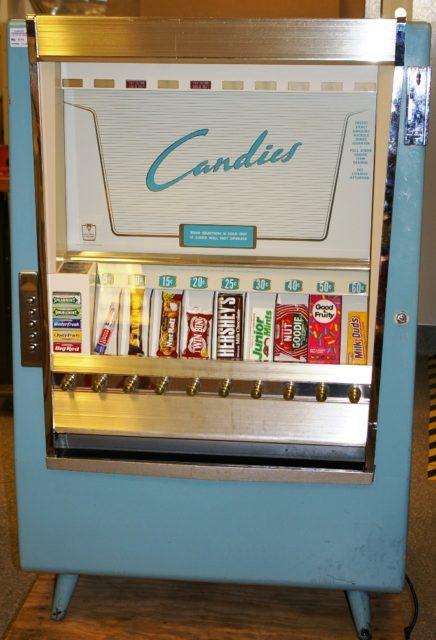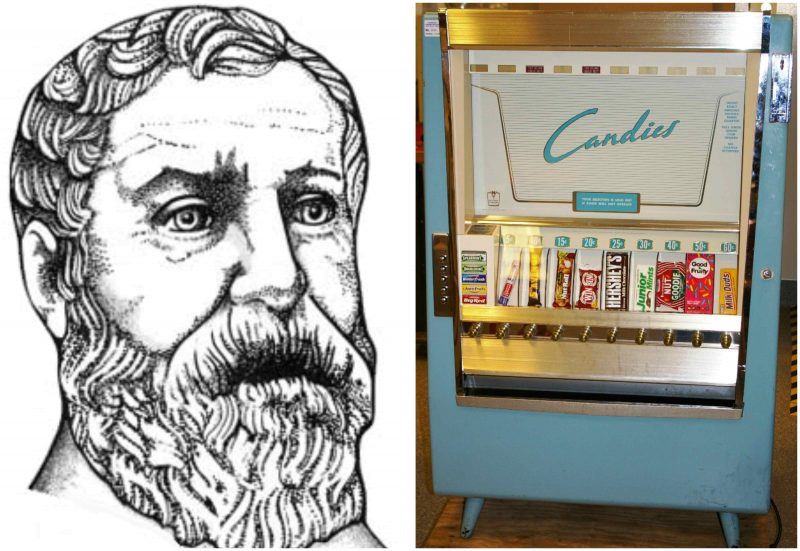Heron of Alexandria (c. 10 CE – c. 70 CE) was one of the greatest and most creative mathematicians and engineers of his time. He was inspired and influenced by Ctesibius, who wrote the first treatises on the science of compressed air.

His great inventions include a description of a steam-powered device that he called aeolipile (recently called “Heron engine”); a water organ; the Dioptra – a surveying device; a primitive, programmable robot (automaton); a fire engine; a water organ; an instrument that used air pressure to produce a jet of water known as Heron’s Fountain; a syringe-like device to control the delivery of air or liquids; a coin operated ‘Holy Water Dispenser’ and many, many others.

In mathematics, he is recognized with describing a method for iteratively computing the square root of a number but mostly notable for his formula (Heron’s formula) for finding the area of a triangle from its side lengths.
Even though most of his writings and sketches are lost, there are some works of him that were preserved in Arabic manuscripts.
His most famous invention is the aeolipile, which is the first recorded steam engine.
It was a rocket-like reaction engine consisted of a copper stand on a boiler with two pipes on the surface. This one was created almost two millennia before the industrial revolution.

Another invention by Heron was the Dioptra, the first surveying machine that was used by the Ancient Greek architects and construction workers in the creation of temples and monuments.
Later on, the machine was used by the Greek astronomers helping them to determine the position of celestial bodies.
Even though this machine might have existed before his time, Heron gave an in-depth analysis of its function.
He is also credited with being the first one who used the wind for machine powering.
He created a wind-powered organ which consisted of windwheel that powered a piston and forced air through the organ pipes.

Heron also supported Greek theater by inventing an entirely mechanical play performed by a programmable robot. It was powered by a binary-like system of ropes, knots, and simple machines operated by a rotating cylindrical cogwheel.
The sound of thunder was produced by the mechanically-timed dropping of metal balls onto a hidden drum.
Further, one of the most famous inventions of Heron was the first vending machine, in which a worshipper inserted a coin through a slot and would get holy water in exchange.
When the coin was deposited, it fell upon a pan attached to a lever.
The lever opened up a valve which let some water flow out.
The pan continued to tilt with the weight of the coin until it fell off, at which point a counter-weight would snap the lever back up and turn off the valve.

Our list of 10 Deadly Inventions in History
With his immense creativity and ingenuity, it makes us wonder what Heron would have invented if he was alive today.
